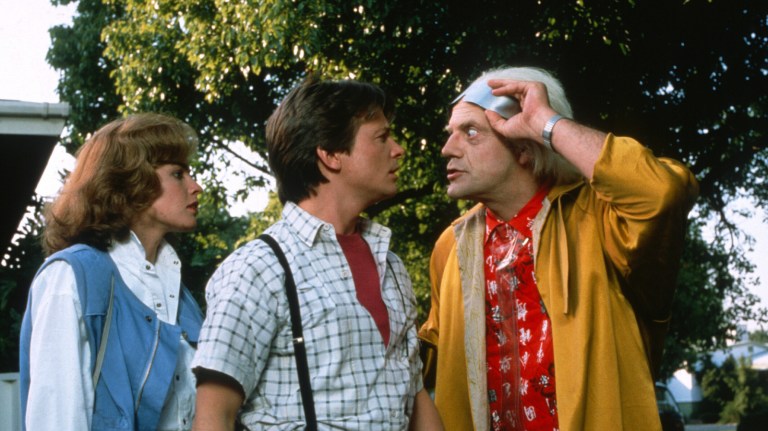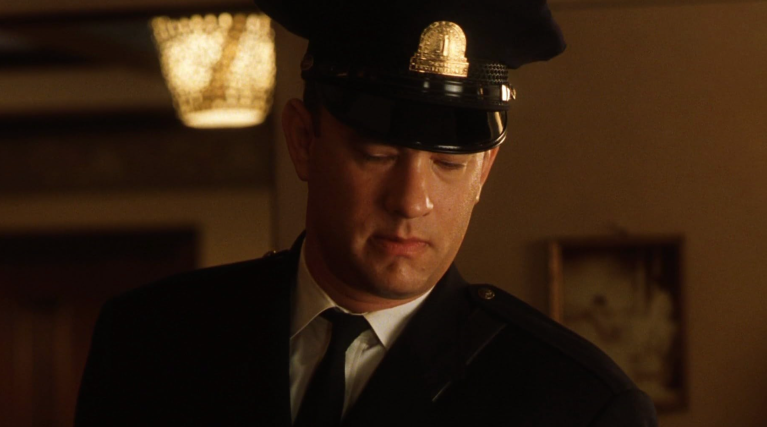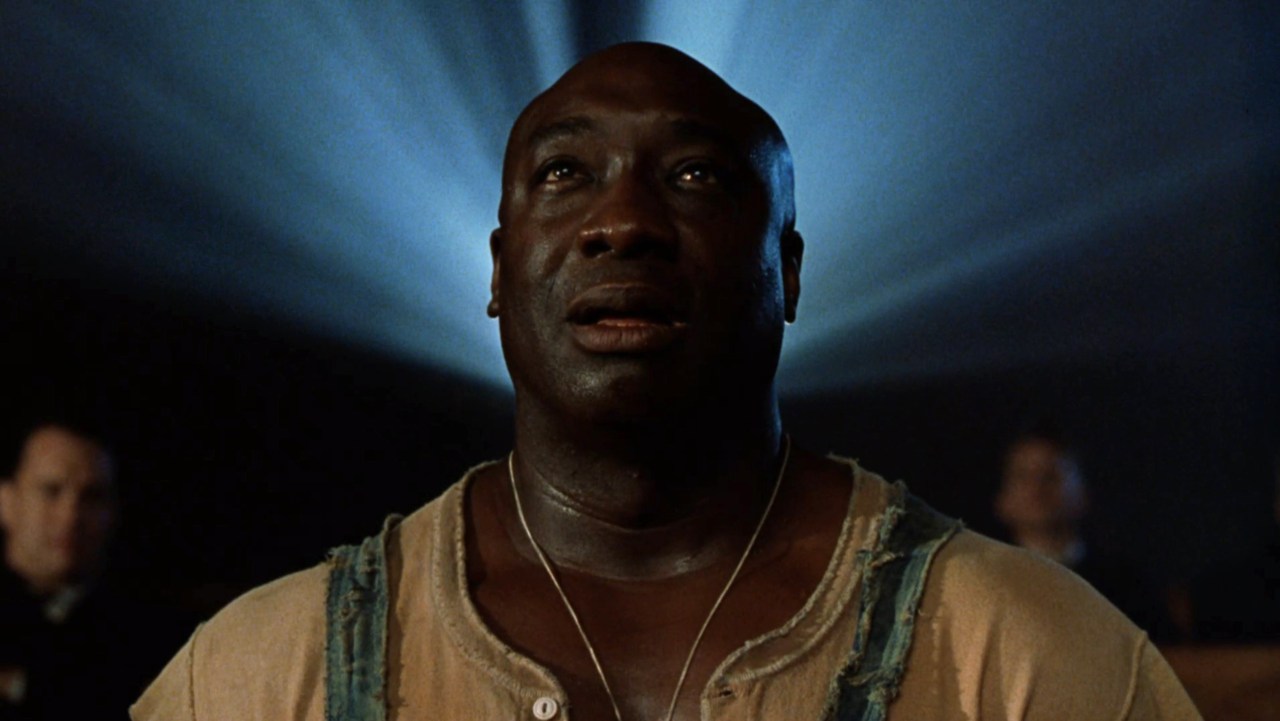
25 Years Ago, ‘The Green Mile’ Broke All Our Hearts And Confirmed John Coffey As An Angel Of Cinema
A quarter of a century ago, The Green Mile's John Coffey turned everyone into a sobbing mess.
Author Stephen King achieved success and acclaim for his contributions to the horror genre, but he also wrote a poignant story called The Green Mile.
Adapted into a film by Frank Darabont in 1999, the tale touches the hearts of viewers through John Coffey (Michael Clarke Duncan), a gentle giant on death row for crimes he didn’t commit.
Despite the stench of death looming on the horizon, John becomes the angel of Cold Mountain Penitentiary, helping both his detainers and inmates as he lives out the last remaining days of his life until his execution. Resultantly, The Green Mile turns into a three-hour-plus emotional roller coaster that doesn’t leave a dry eye by the time the credits roll.
John Coffey’s lack of resentment toward the world is remarkable
Imagine being in John Coffey’s shoes. He’s persecuted for a crime he doesn’t commit. He faces death as a punishment and there’s no turning back from what’s to come. He’s a strong and powerful man, though – both physically and magically. If he wanted to, he could have escaped, and who would have stopped him? The guards are half his size and he could easily swat them away, while his magical powers hold untapped potential. Yes, he admits at a point that he doesn’t quite understand the nature of his powers or how far they extend, but deep down inside, he must know he possesses the tools to escape this miscarriage of justice if he chooses.
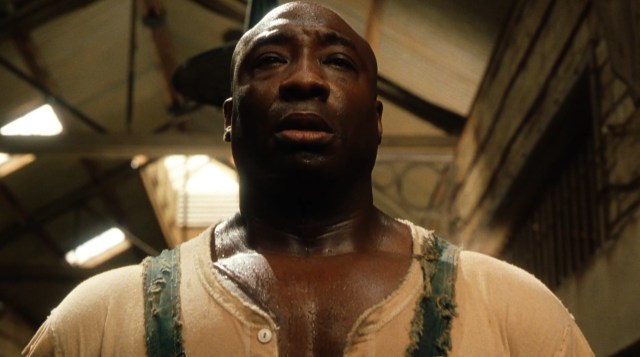
By contrast, John accepts his situation, never trying to antagonize or fight back. When the justice system fails him, he doesn’t develop resentment toward it or the people carrying out his sentence. In fact, he helps to cure Paul Edgecomb’s (Tom Hanks) bladder infection and Warden Moore’s (James Cromwell) wife’s tumor. How many of us can say we would do the same for those who wrong us? Despite the ugliness and hatred of what’s around him, John lives with purity in his heart and continues to do good.
Even when Paul discovers John’s innocence and wants to work to get him out of death row, John tells him that death will be a mercy because of the cruelty around him. It raises an important and tragic question: Did the world break John’s pure heart in the end or does he know that he needs to depart in order to preserve his innocence? John looks particularly taken aback after he puts the tumor’s affliction into the dreadful Percy Wetmore (Doug Hutchison), who in turn kills Wild Bill Wharton (Sam Rockwell) – the real perpetrator of the crimes that John is accused of. Maybe John felt the resentment starting to grow inside him and didn’t like it. Whichever way, it’s undisputed that he finds a way to leave the world a better place than what he found it.
Michael Clarke Duncan was robbed of an Oscar Award
The late, great Michael Clarke Duncan subverted the racial stereotypes of magical Black characters to deliver a deeper and rousing performance as the vulnerable but enigmatic John Coffey. Even critic Roger Ebert couldn’t help but be impressed by Duncan’s portrayal, writing that “the goodness of Coffey [is] embodied by Duncan in a performance that is both acting and being.” Needless to say, The Green Mile wouldn’t work if Duncan failed to make the audience feel for John in this story, irrespective of all the other incredible performances around him.
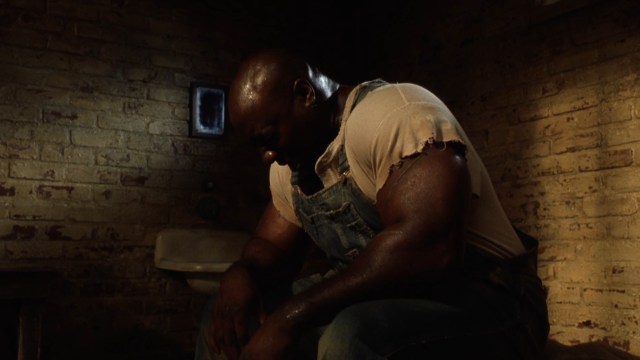
Rightfully so, Duncan received an Academy Award nomination for Best Supporting Actor in 2000. In the end, though, he lost out to Michael Caine, who won the prize for his performance as Dr. Wilbur Larch in The Cider House Rules. Take nothing away from Caine or the film, as they’re both fantastic, but let’s not fool ourselves here: Which has had a more significant cultural impact since its release?
Duncan’s performance continues to be spoken about to this day. It’s to the point in which no one has touched The Green Mile or thought about another adaptation because it would be impossible to replace the synergy that Duncan has with John. Twenty-five years later, this performance is still spoken about, while The Cider House Rules remains one of those “oh, yeah, I forgot that exists” movies. Duncan was robbed of the recognition he deserved – plain and simple.
‘The Green Mile’ defies cynicism, opting for hope instead
Whether it be the guards or inmates, it’s easy to see how people could become jaded or cynical after spending time at Cold Mountain Penitentiary. The institution symbolizes death – the end of the Green Mile. Walking down those halls, one senses the misery in the air as everyone accepts the inevitable but stays stuck in the cruel limbo.
Yet, the presence of John Coffey brings hope to others – not the kind that people will survive or escape from the penitentiary. Instead, it’s about how there’s the ability to still do good in the world regardless of the circumstances or one’s past. John brings a shining light – it’s fleeting and not meant to last forever, but it’s comforting in a place where darkness tries to prevail and cloak everyone in its despair.
The Green Mile holds the ability to infuriate and dishearten about all the injustices in the world. Especially in terms of how an innocent man is executed purely because of the color of his skin. Yet, even through this unfairness, John Coffey never becomes bitter nor turns angry against the travesty he’s faced. Yes, he’s scared and afraid of what lies beyond the great unknown, but he uses his gifts to bring peace to the hearts of those at the end of his journey.


